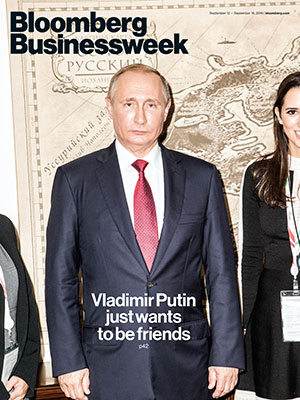Kim Bepler, a Fordham trustee fellow, is providing a dollar-for-dollar match for all donations to the new Fordham Ukraine Crisis Student Support Fund, up to $50,000. The fund will be used for essential needs such as meals, housing, emergency health care, travel funding, tuition assistance, and more.
It is meant to help roughly a dozen Fordham students from the two countries whose finances, and lives, may have been disrupted because of the conflict. A few of those students have already sought help from the University, and more are expected to do so.
Bepler said she offered the funding as a way to help Fordham students who have lost not only their funding sources but also their sense of certainty and stability.
“I feel strongly about the situation, especially [because of]the students and how vulnerable they must feel when they have no access to their family and they don’t know what’s going to happen to them next,” she said. “It’s not fair.”
The war has caused anguish and a sense of helplessness for some Fordham students who have family members in Ukraine who are caught up in the conflict. It has prompted rallies and discussions in the University community, as well as a fellowship program cosponsored by Fordham’s Center for Jewish Studies to help Ukrainian scholars carry on with their work, despite the conflict.
The Russian invasion has caused $565 billion in economic losses in Ukraine, one of its government ministers said on March 28, and more than 4 million refugees have fled Ukraine since the start of the invasion, according to the United Nations High Commissioner for Refugees.
Russian students are vulnerable too, as financial freezes in response to the Russian invasion can keep Russian families from supporting their students in the U.S. These young people may also be impacted emotionally by the backlash that Russians around the world are facing due to Putin’s actions. Bepler expressed hope that Russian students would not feel burdened or isolated by an action begun by the Russian president.
“This is symbolic of defending democracy against a madman,” she said. “In response to the madman, we’re going with magis,” she said, referring to the Jesuit concept of always seeking more opportunities to help others.
“If my small gesture helps one student do one simple thing much easier, and with less pain,” she said, “I feel very blessed.”
Donate to the Fordham Ukraine Crisis Student Support Fund.
To apply for assistance from this fund, please contact Brian Ghanoo, assistant vice president, Office of Student Financial Services, at 718-817-3811 or [email protected].
]]>A TV producer covers Brexit, OPEC, the French elections, and Vladimir Putin
As Bloomberg TV executive producer for Europe, the Middle East, and Africa, Annmarie Hordern oversees a team of about a dozen producers from Dubai to London, where she’s based. They’ve produced programming on a wide range of topics, from Brexit to OPEC to the French elections.

“Last night we did four hours of breaking news with the numbers coming out,” she said by phone the day after the first round of the French presidential vote. She enjoys the fast-paced work. “You’re thinking as quickly as you can on your feet about how you’re going to tell that story.”
The Long Island native said it’s an “amazing time” to be in Europe. “It just seems like there are never-ending interesting stories to cover that will really have an affect on our future.”
Last November, Hordern was at the OPEC meeting in Vienna when the group decided to cut its oil production for the first time in eight years. OPEC is one of her favorite stories to cover, she said, in part because of the major potential impact of the work. “Any news we end up reporting,” she said, “could move the price of oil or other assets.”
Perhaps Hordern’s biggest story was Bloomberg’s exclusive interview with Vladimir Putin in September 2016, just before the U.S. elections. As the producer, Hordern handled the many logistical issues that come with producing content for several outlets, including Bloomberg Businessweek. “It’s about trying to work as one global team,” said Hordern, who also went to Tehran to cover Iran’s elections in May.
This year, Hordern was named to Forbes’ “30-Under-30 Europe” list for media. When she was under 20, she got her start as student reporter at WFUV, Fordham’s public media station.
“When I went to Fordham I wanted to be a lawyer. That was before I stepped foot into [WFUV News and Public Affairs Director] George Bodarky’s office,” she said. She realized she’d been bitten by the journalism bug “the first time they sent me out with a mult box and a mic.”
Bodarky said Hordern “was on a path to greatness from day one. It’s just who she is.” He recalled her first feature, about a couple that exchanged vows in a shark tank. “She won two feature awards for that piece.”
While at Fordham Hordern interned for Charlie Rose, which proved fortuitous. “He tapes at Bloomberg TV,” she said. With a little help from an FUV alumna at Bloomberg who passed on her resume, Hordern started working at Bloomberg TV in New York the summer after graduation. “I was a production assistant. … Slowly they would give me more responsibility, and I said yes to everything.”
]]>